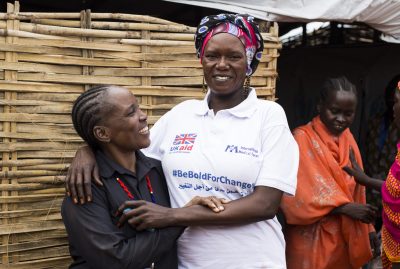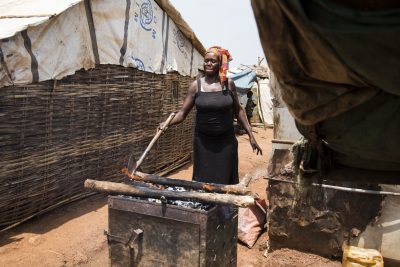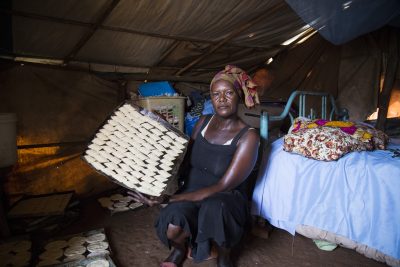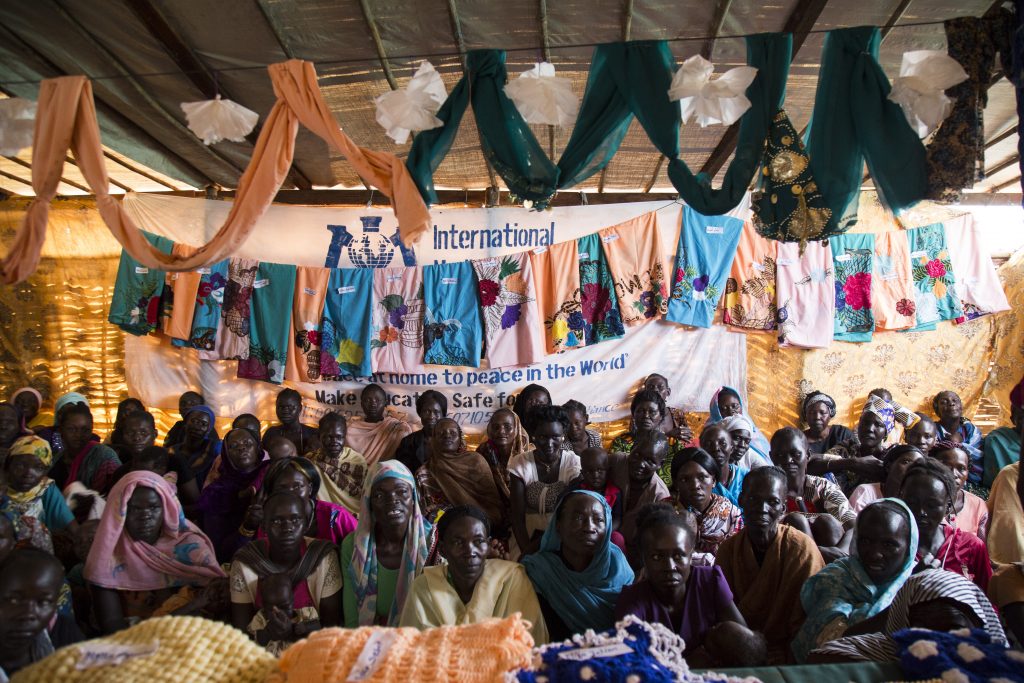As a gender-based violence (GBV) case manager for International Medical Corps in Wau, South Sudan, my job is emotionally exhausting and at times dangerous. I run a 24-7 hotline that people can call to confidentially report cases of abuse, including rape and sexual assault. I then respond to those calls, tracking down the survivor and making sure he or she gets medical treatment. I then work to heal their emotional wounds through counseling and other services.
One day, a call came into the hotline.
“Vicki, there is a case that was beaten by her husband in the camp and she can’t walk,” the caller said. “We need you.”
I rushed to the camp, which is home to more than 30,000 people seeking refuge from the civil war, which erupted in the capital, Juba, in December 2013 and spread throughout the country. I went shelter to shelter, looking for the woman the caller told me about. I spent all day in the camp, but could not find her. I couldn’t sleep that night.

I went back to the camp the following day and eventually found her, sitting down in front of her shelter. I greeted her, but she could not even lift her hand to greet me. She had been beaten so badly she could barely move, let alone walk. When I asked what happened, she broke down sobbing. I didn’t know her, but I held her as we cried together. I just wanted to show her love and that she is not alone.
Once she calmed down, she told me that her name was Sophia*. Her husband had left her for another woman and would not give her any money or resources. When she asked him one day for money to buy sugar, he accused her of following him and beat her so violently that she couldn’t walk.
“How can a person you love in just a second turn against you?” she said to me. “People had to lift me up from the ground and take me back to my house. This is how you are seeing me, Vicki.”
I told her she was safe and that I believed her. I realized that it was out of shock of her husband’s violent reaction that she lost her mobility. She had no physical injuries that required medical attention but required trauma healing.
I rushed to the women-friendly space International Medical Corps runs in the camp, with support from UK Aid, and grabbed a dignity kit, which has basic essentials for vulnerable women. I returned to Sophia’s shelter and handed her the kit. “This is a small gift,” I said. “I know it is not enough, but this is the least that we can do.”

She embraced me, thankful for the gift, and cried again. “No one cares about me, Vicki,” she said. “Even now I feel like killing myself, like committing suicide. It is better that I die than live like this. My two boys are looking at me not doing anything. I used to be strong, feeding them. Now who is going to feed my children.”
I then made it my mission to show Sophia that she was still strong and restore the dignity that was taken from her by her abusive husband.
I visited Sophia in her home every day and we did small strength-building exercises to get her mobility back. I also asked four women at the women-friendly space to visit Sophia every day to assure she had gone to the toilet, that her shelter was clean, and then assist her in reaching the center so that she could interact with other women and participate in the handicraft-making activities that we run.
They did exactly as I asked. Slowly, Sophia began to recover physically and emotionally. Within two months, she could walk with a cane. After four months of us working with her each day, Sophia finally no longer needed the cane. She could walk to the center on her own.

I will never forget the day she walked in the women-friendly center without her cane. All the women shed tears of joy. Sophia also cried, overwhelmed by what she had overcome.
Today, Sophia is one of the most active women in our center. She loves to dance with the other women. She participates in drama activities and campaigns against violence. International Medical Corps also gave her support to start a small bakery business, which gives her a small income to take care of herself and her two sons. Any time we have a visitor in the center, Sophia shares her story, saying that if it were not for our intervention, she would not be alive today.
I always tell Sophia it was her own inner strength that made her recovery possible. We just helped her find it again.
*Name was changed to protect identity.
